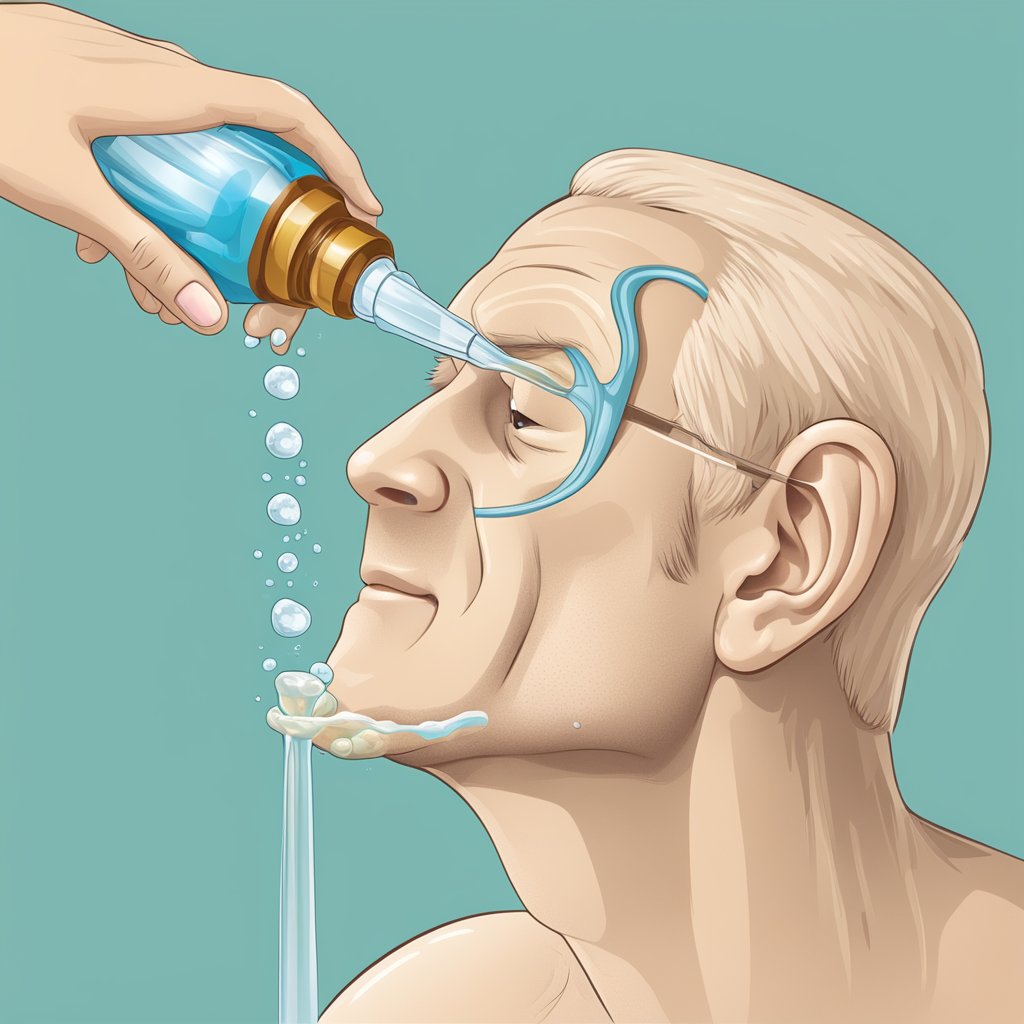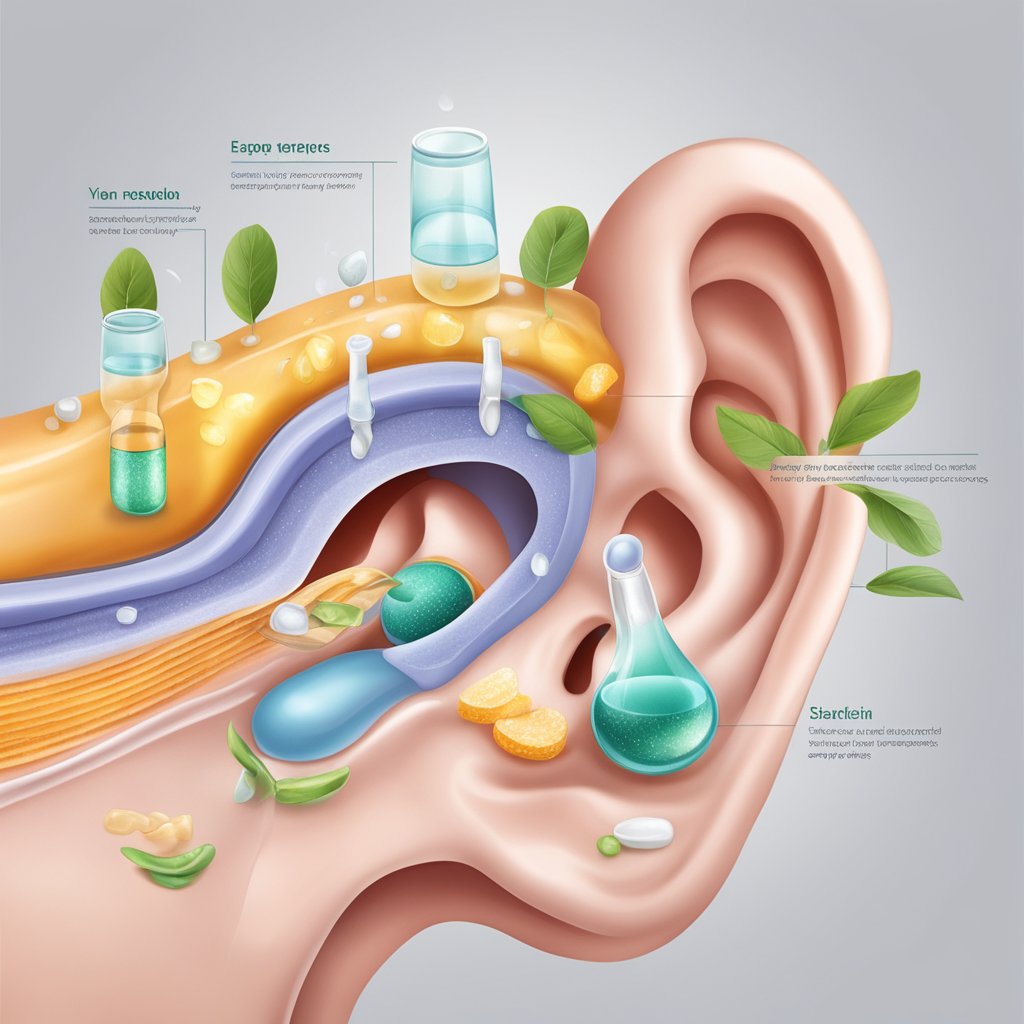Swelling in the ear canal can be a painful and uncomfortable condition that affects hearing and balance. It’s often caused by infections, allergies, or even the presence of a foreign object, making immediate attention necessary to alleviate discomfort and prevent further complications. Identifying the cause is crucial to effectively reducing swelling and addressing the underlying issue.

It’s essential for individuals to recognize when medical intervention is necessary. Home remedies can sometimes provide temporary relief, but they may not be suitable for all situations. Over-the-counter medications and prescribed treatments offer solutions when home management is insufficient. Long-term care includes proactive measures to prevent recurrence and to maintain ear health. As someone who values health and well-being, understanding the steps you can take toward treatment and prevention could significantly improve your comfort and quality of life.
Key Takeaways
- Identifying the cause of swelling is key to effective treatment.
- Medical advice is crucial when home remedies are inadequate.
- Long-term care and prevention measures are important for ear health.
Understanding Ear Canal Swelling

Ear canal swelling, medically referred to as otitis externa, can greatly affect my comfort and hearing. Swift recognition of symptoms and understanding common causes is imperative for proper care and prevention.
Identifying Symptoms
- Pain: It’s common for me to experience pain, which can range from mild discomfort to severe aching.
- Redness and Swelling: I look for visible redness in my ear canal, which often accompanies the swelling.
- Discharge: On occasion, there may be some clear, pus-like, or foul-smelling discharge.
- Hearing changes: I might notice a temporary reduction in my hearing ability.
- Itchiness: An itching sensation inside my ear is not unusual.
- Fullness: I often feel a sensation of fullness or pressure in the affected ear.
Common Causes
- Infections: An infection caused by bacteria or fungi often leads to swelling. This is particularly true for swimmer’s ear, which is an infection resulting from trapped moisture.
- Allergic Reactions: Products like earplugs, hearing aids, and hair products can sometimes provoke an allergic reaction that leads to swelling.
- Skin Conditions: Eczema, psoriasis, and dermatitis can manifest within my ear canal and create inflammation.
- Insect Bites: A bite inside or near my ear canal can cause swelling.
- Trauma: Inserting objects into the ear or aggressive cleaning can damage the delicate skin of the ear canal, resulting in inflammation.
Medical Consultation and Diagnosis
If I experience persistent symptoms such as pain, discharge, or significant ear swelling, I know it’s important to seek medical attention without delay to get a proper diagnosis and prevent complications.
When to See a Doctor
I should consult a physician if I have symptoms like severe ear pain, hearing loss, fever, discharge that includes pus, or signs of cellulitis such as redness and tenderness around the ear. These could indicate an underlying medical condition that might compromise my immune system or potentially lead to mastoiditis. It is critical to visit a doctor if home treatments have not improved my condition or if my symptoms have worsened.
What to Expect During Your Visit
During my visit, the doctor will review my symptoms and medical history. The doctor may perform a series of examinations:
- Physical Exam: Inspection of the ear canal for signs of swelling, discharge, or foreign objects.
- Hearing Tests: To assess if there has been any hearing loss.
- Laboratory Tests: If there is discharge, a sample may be taken to identify any bacteria or viruses.
Visiting an ER becomes essential when symptoms are severe or develop suddenly, as prompt treatment can prevent further complications.
Treatment Options and Medication
In addressing swelling in the ear canal, I’ll focus on both medically prescribed treatments and practical home remedies for pain management.
Prescribed Treatments
I understand that when the ear canal is swollen, it often requires a prescribed medication for treatment, particularly when an infection is present. Antibiotics play a critical role if there’s a bacterial cause. In cases where I suspect this, it’s essential to visit a healthcare provider to determine if antibiotic ear drops or oral antibiotics are necessary.
Additionally, if there’s significant buildup in the ear that isn’t resolving with medications alone, a professional might need to perform drainage to relieve pressure and reduce swelling. Hearing aids users should consult with a healthcare professional to minimize exacerbation of the symptoms.
Home Remedies and Pain Management
For managing pain at home, I recommend over-the-counter pain relievers like ibuprofen. This medication not only helps to alleviate pain but also reduces inflammation. The use of a warm compress can provide immediate relief by soothing the swollen area, improving blood flow, and potentially reducing swelling.
For situations where allergies may be causing ear canal swelling, an antihistamine can be beneficial. I find that a holistic approach, including judicious use of ear drops that might have a steroidal anti-inflammatory component, is effective. Beware, though, ear drops should not be used if the eardrum is perforated.
In terms of home interventions, applying ice packs wrapped in a cloth intermittently to the affected ear can reduce swelling and discomfort. It’s important that I apply ice correctly—never directly on the skin and only for short periods to prevent skin damage.
Remember that any medication, including over-the-counter options, should be used as directed to prevent any complications.
Prevention and Long-term Care
I will now focus on essential strategies to prevent swelling in the ear canal and ensure its long-term care. It is critical to understand how lifestyle adjustments and managing certain health conditions can play a significant role in this process.
Lifestyle Changes and Precautions
Earplugs: When swimming or showering, I suggest using earplugs to prevent water from entering the ear canal, reducing the risk of swimmer’s ear. It’s important to choose earplugs that fit well and are designed for use in water.
- Allergies: If I have allergies that affect my ears, I make sure to manage them properly, often with the help of my healthcare provider, to avoid allergic reactions that could cause swelling.
- Hearing Aids: I keep my hearing aids clean and dry. Regular maintenance can prevent moisture buildup, which may lead to swelling.
- Cotton Swabs: I avoid inserting cotton swabs into my ear canal. Instead, I wipe the outer ear gently to remove excess moisture or earwax.
- Earrings: If piercings are the issue, I select hypoallergenic earrings and follow proper piercing aftercare to prevent infections and allergic reactions.
Managing Underlying Conditions
Eustachian Tube Dysfunction: If I experience frequent issues with my eustachian tubes, I seek medical advice to address this underlying condition, as it can contribute to ear swelling and discomfort.
- Glands and Moisture Control: I recognize the importance of glands in moisture and earwax regulation. I ensure that any signs of rash or excessive sweat around the ear are evaluated by a healthcare professional.
- Swimmer’s Ear Prevention: To avoid swimmer’s ear, a common cause of ear canal swelling, I keep my ears as dry as possible, especially after water activities.
Frequently Asked Questions
In this section, I cover common inquiries regarding the treatment of a swollen ear canal.
What home remedies can alleviate a swollen ear canal?
I recommend applying a warm compress gently to the area to soothe discomfort. Over-the-counter pain relievers and hydrocortisone cream can also help reduce pain and swelling. It’s important to avoid inserting anything into the ear canal.
How long does it typically take for a swollen ear canal to heal?
The healing time can vary, but a mildly swollen ear canal often improves within a few days with proper care. If the swelling is due to an infection, it may take a week or more. Persistent or worsening symptoms warrant a consultation with a healthcare provider.
What are effective methods to reduce inflammation in the ear?
To manage ear inflammation, I often suggest using nonsteroidal anti-inflammatory drugs (NSAIDs), avoiding water and irritants in the ear, and refraining from using earbuds or hearing aids until the swelling subsides. If an infection is present, a doctor might prescribe antibiotics or antifungal medications.
Is it better to apply heat or cold to a swollen ear canal?
Generally, a warm, not hot, compress can provide relief for a swollen ear canal as it helps increase blood flow and reduce discomfort. Cold can sometimes alleviate pain but should be used with caution to prevent numbing the area too much, which could cause additional discomfort.
What could be causing jaw pain in conjunction with a swollen ear canal?
Jaw pain associated with a swollen ear canal could be a sign of temporomandibular joint disorder (TMJ), ear infections, or referred pain from tooth issues. If this occurs, I advise seeking medical attention to address the underlying cause.
What are the reasons for swelling on the outside of the ear?
Swelling on the outside of the ear might be attributed to trauma, insect bites, contact dermatitis, or cysts. It’s essential to determine the cause in order to treat it effectively, which may involve antibiotics for an infection or corticosteroids for allergic reactions.